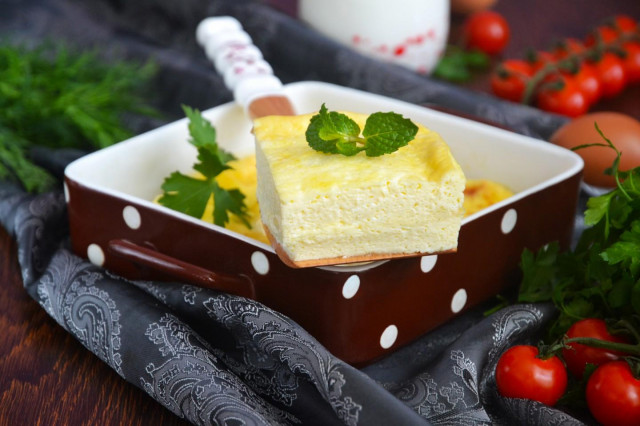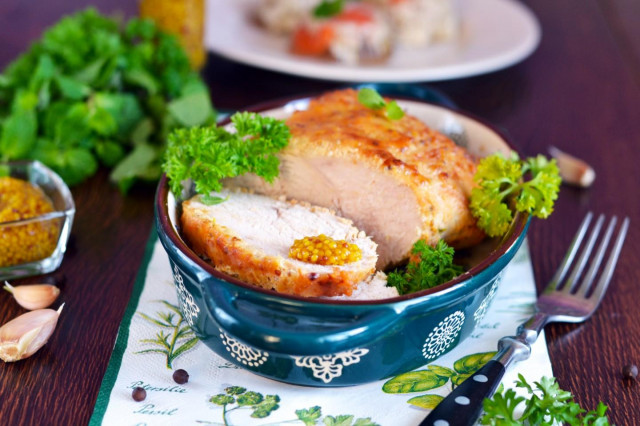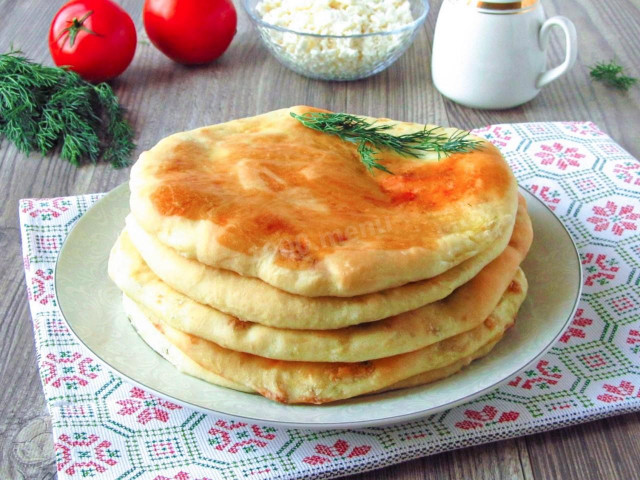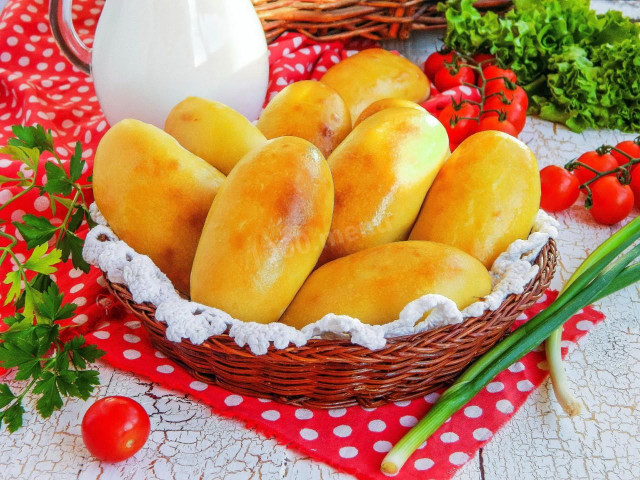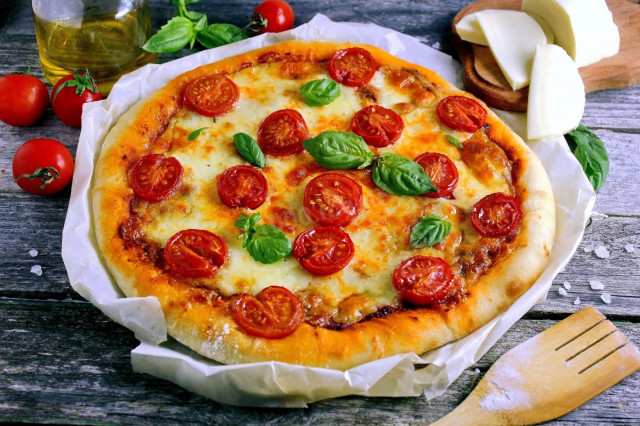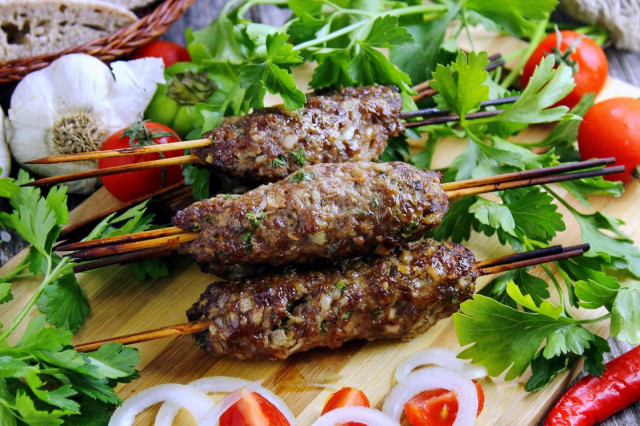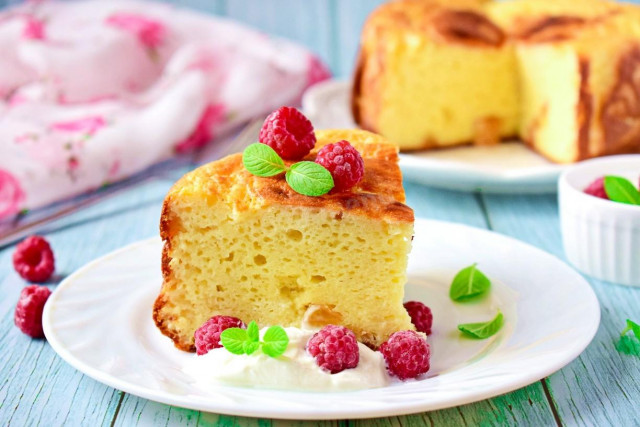Composition / ingredients
Step-by-step cooking
Step 1:

How to make a lush omelet in the oven? Prepare the necessary ingredients. It is better to use milk and eggs at room temperature, because salt dissolves poorly in a cold mixture. Instead of two types of oils, you can use only butter to lubricate the mold and omelet.
Step 2:

In a bowl, break the eggs at room temperature, add salt.
Step 3:

Pour in the milk at room temperature.
Step 4:

Lightly stir the mixture with a whisk until smooth. It is not necessary to beat the mixture strongly, especially do not use a mixer, otherwise the omelet will not rise. In general, you should try to stir so that as few large bubbles as possible form on the surface. It is enough for the protein and yolk to combine with the milk.
Step 5:

The bottom and walls are not very large, but high enough for baking, lubricate with vegetable oil. Or you can replace it with butter. Please note that the thickness of the finished omelet directly depends on the size of your mold. The smaller the shape and the higher the sides, the more magnificent the omelet will be and vice versa. Therefore, see which form is best suited from those that are in your arsenal.
Step 6:

Pour the egg-milk mixture into the mold. The form should not be filled to the brim, so that the omelet has a place to grow during baking. And it rises quite strongly - by about a third.
Step 7:

Preheat the oven. Bake the omelet for about 30-40 minutes at 170-180 ° C. Do not open the oven during baking, otherwise the omelet will fall off. The finished omelet should have a golden crust on the surface.(!)* (see below) It is better to keep the finished omelet in the cooling oven for another 5 minutes.
Step 8:

Remove the finished omelet from the oven and brush with butter on top. In order not to damage the top layer of the omelet, melt the butter better and apply with a soft silicone brush. When in contact with cold air, a properly cooked omelet settles slightly. It is ok. But if it became very thin, like a pancake, then the technology was broken at some stage. Cut the finished omelet into pieces and serve it to the table. Bon appetit!
How do I know if an egg is fresh? Break it into a separate container. First of all, there should be no unpleasant smell. The protein of fresh eggs will be transparent and clean. The yolk should not spread and will be shiny, convex, homogeneous.
Keep in mind that everyone's ovens are different. The temperature and cooking time may differ from those specified in the recipe. To make any baked dish successful, use useful information about the features of ovens !
(!)* If you see that the omelet rises too quickly and unevenly, with large height differences, it means that either you have unevenly distributed heat in the oven, or too much heating. The omelet should rise approximately equally over the entire surface.
Caloric content of the products possible in the composition of the dish
- Whole cow's milk - 68 kcal/100g
- Milk 3.5% fat content - 64 kcal/100g
- Milk 3.2% fat content - 60 kcal/100g
- Milk 1.5% fat content - 47 kcal/100g
- Concentrated milk 7.5% fat content - 140 kcal/100g
- Milk 2.5% fat content - 54 kcal/100g
- Chicken egg - 157 kcal/100g
- Egg white - 45 kcal/100g
- Egg powder - 542 kcal/100g
- Egg yolk - 352 kcal/100g
- Ostrich egg - 118 kcal/100g
- Butter 82% - 734 kcal/100g
- Amateur unsalted butter - 709 kcal/100g
- Unsalted peasant butter - 661 kcal/100g
- Peasant salted butter - 652 kcal/100g
- Melted butter - 869 kcal/100g
- Vegetable oil - 873 kcal/100g
- Salt - 0 kcal/100g

